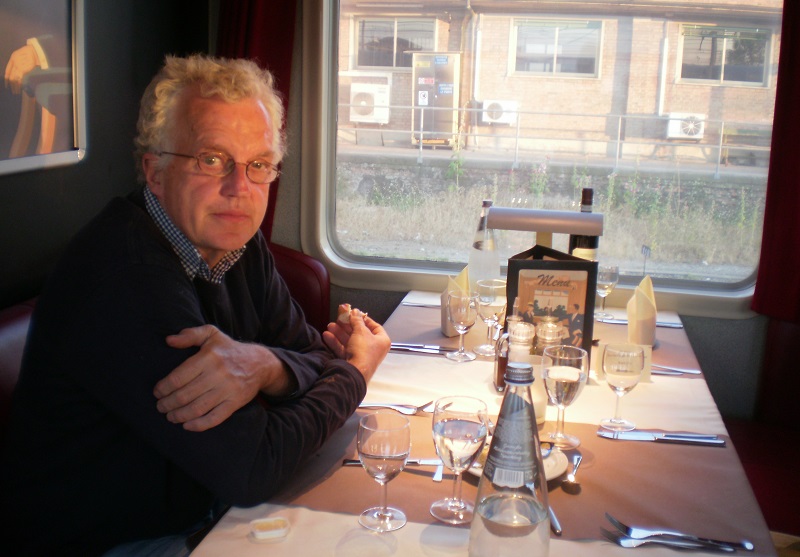Suddenly local taxation is in the news and protestors are on the streets. The doddery old couples from Devon lining Parliament Square may seem far removed to their brick throwing predecessors with their Mohican hair cuts of fifteen years ago in Trafalgar Square, but the issue is the same – the unfairness of local taxation.
The council tax was really an emergency stop gap measure introduced in haste when the Tories realised that the poll tax, which had done for Mrs Thatcher, was unsustainable. It is, really, nothing more than a rather regressive version of the rates, with a different name. By having the highest level of payment set at a relatively low level, big property owners got away with paying a much smaller amount than they had under the old rates system.
The other problem with the council tax is, of course, that it is the sole form of locally raised income for councils, apart from a few sundry charges and, in London, the congestion charge. Since that leaves most of local expenditure to be funded out of government grant, the perennial problem of gearing remains – for every 1 per cent rise in local expenditure that is not funded by central government, the council tax has to go up by a staggering 4 per cent. Add to that rising wages, increasing demand and you have a recipe for a crisis.
And a crisis is, indeed, looming. The hit which Labour took in the municipal elections was not only because of mid-term blues. Local people do understand that rises in the council tax are largely the result of decisions taken by central government. This is going to get worse. Unless John Prescott, is able to convince Gordon Brown that local authorities are a priority for the spending review – about as likely as seeing the Deputy Prime Minister star in a performance of Swan Lake – then next year’s is likely to see some double digit rises around the country.
The very fact that Prescott’s junior minister, Nick Raynsford, is beginning to make threatening noises about a return to capping suggests that the government knows that something has to be done on the issue.
But what? Local government spending is very much part of the government’s agenda to improve public services. But while the increase in the amount of money spent by local councils is broadly in line with the overall rise in government expenditure – 33 per cent compared with 32 per cent – the gearing and the meanness of grants has meant that the council tax take has gone up by 51 per cent. No wonder people who have to pay the tax, like those pensioners who presumably are affluent enough not to qualify for rebates but not rich enough to bear the rise without scrimping, are taking to the streets.
And it is going to get worse. The effects of the census, a new grant regime and various extra requirements on councils mean that it is near impossible for civil servants in Whitehall to second guess what rises individual councils may need. Simply capping the tax level of those whose grant happened not to have risen sufficiently to compensate for extra demands would merely compound the injustice.
Assuming that Gordon Brown is not suddenly going to divorce Prudence, the government has to grasp the nettle over local government funding. Interestingly, this featured prominently at the party conferences of Labour’s two political rivals, with both the Conservatives and Liberal Democrats suggesting alternative ways of funding local government. Labour remained silent on the issue because it is in the midst of what is a limited look at possible extra ways of paying for local services, the meetings of the Balance of Funding review chaired by Nick Raynsford.
While Labour has periodically made noises about decentralisation during its six years in government and then quietly forgotten about the issue, this time the issue of giving local authorities more powers to raise money is being seriously considered. The funding review is looking at potential sources of income, such as the Liberal Democrats idea of local income tax or sales taxes. Although these have been rejected in the past, ministers are now beginning to realise that with pensioners on the streets, the limits of what can be raised by a pretty regressive system like the council tax are being reached.
However, as the suggestions about capping demonstrate, Labour does not trust local government to behave responsibly. In effect, ministers are facing both ways. They do not want to see the council tax go up and yet want to see more spent on vital local services. Moreover, they are talking about decentralisation but are reluctant to devolve any real power. This sitting on the fence cannot continue. Tony Blair once promised us that he would be willing to make hard choices and this is an opportunity. Give councils more power to raise revenue and let them face the consequences if local people don’t like what they are doing. Otherwise, do not be surprised if central government gets the flak for big council tax rises.
Indeed, after many years of dodging the issue, the government may be prepared to bite the bullet. There are indications that a local income tax is being seriously considered, and that would prompt a real revolution in local government funding which may keep those pensioners off the streets of the capital.
